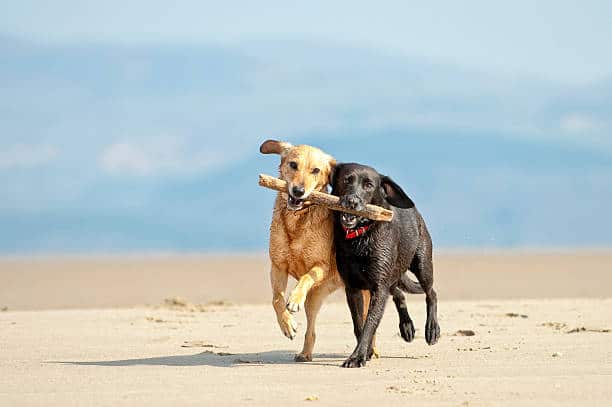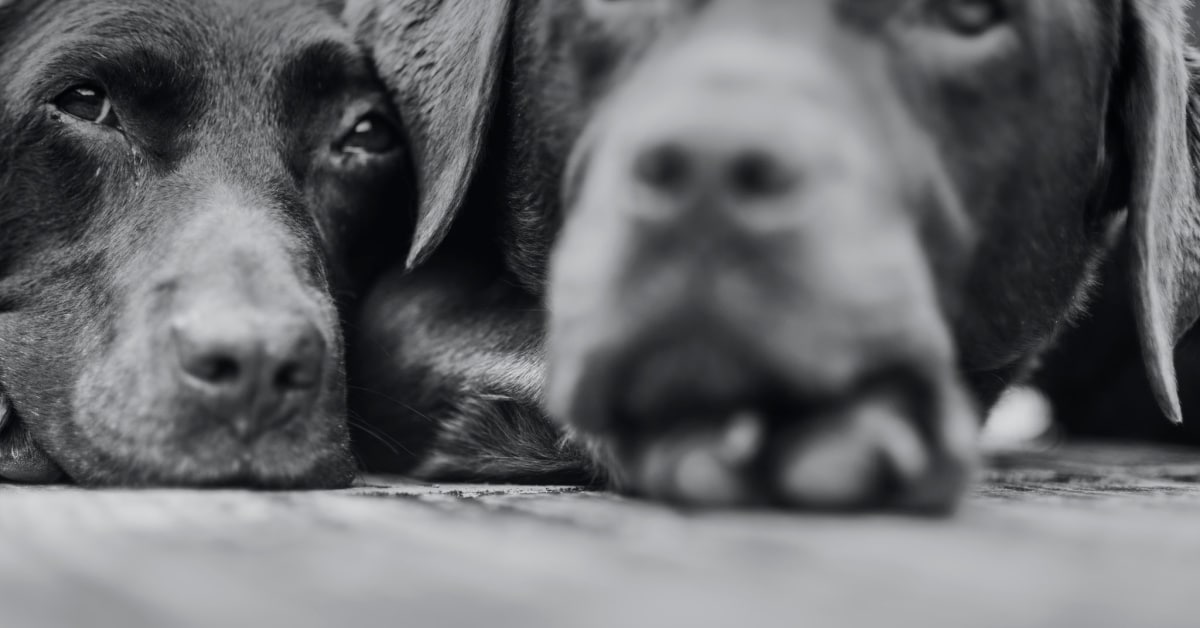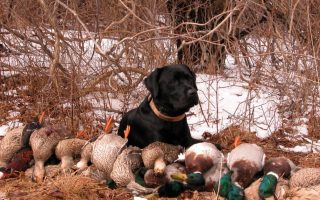
Thanks to their easy-going and affectionate temperament, Labrador Retrievers have no problems with making friends. Nonetheless, you may have a hard time learning how to introduce your Lab to another dog.
In this article, we will go over tips on how to introduce your Lab to another dog and when to identify if the interaction is not fruitful.
Knowing the proper way to introduce two dogs is not only helpful when you bring home another Labrador; it’s also incredibly helpful when you meet other dogs on your outdoor activities.
Why is it important for your Labrador to interact with other dogs?
First and foremost, most Labrador Retrievers are living beings that thrive on socializing with others.
Hence, it is important that your Labrador knows. What it’s like to interact with another dog so that they can get used to the idea of interacting with their fellow canines.
To add to that, if you do decide to welcome another pup into your family. The interaction between your first dog and your second will be smoother.
Take note, though, that dynamics in each pet relationship will be different from others.
How to introduce your Lab to another dog
Below are some practical suggestions on how to introduce your Lab to another dog:
If the dog and owner are strangers
When going out for walks, it’s inevitable that you will meet another dog with their owner.
If this happens, and you want to introduce your Labrador to the other dog The first and the right thing to do is to ask permission from the other dog’s owner if they think it’s alright.
Some owners might not feel comfortable with their dogs interacting with strangers. While others may have dogs that do not respond well to interaction with strange dogs.
Either way, it is common courtesy to ask first before doing anything.
Once you have the owner’s approval, you can then try to introduce your Lab to the other dog. This will most likely lead to both canines doing ‘dog’ things like smelling each other.
However, if there are signs indicating that the introduction or interaction should not take place You should remove your Lab from the situation.
Signs that your Lab is okay with the introduction to another dog
According to the AKC, yawning, turning away, shaking, tense jaws, and tails held low are indications that you should cut the meeting short before anything escalates further.
On the other hand, both dogs’ introduction is going well if your Labrador Retriever and the other dog seem relaxed and interested in getting to know each other.
You may even see both dogs wagging their tails excitedly and wiggling their behinds when this happens.
Hopefully, all goes well and it turns out to be a positive experience for everyone involved.
Take note, however, that not every dog interaction will be a success, and that’s completely okay.
Just like humans, canines also have their own unique personality, and your Labrador is no exception to that.
Bear in mind also that you should not let your Lab interact with every single dog that you meet on your walks.
This may cause them to feel like they can just go up and interact with other dogs. Which may have those other canines feeling uncomfortable and aggressive.
To keep dog-to-dog interactions as productive as possible, only use it at opportune moments.
A planned introduction
If you have friends who are interested in having their own dogs meet up with other furry pets. It may be a good way for you to bolster your knowledge on how to introduce your Lab to another dog.
After all, even certain planned interactions like these still require proper introduction and management.
When you do set a date, make sure that it is on neutral ground. Such as an outdoor space, to reduce the risk of issues.
The best way to introduce two dogs for the first time is to keep them on a leash as a precaution.
Some dogs may act differently when they are leashed. But it is a precaution that you will have to take to easily remove your Lab from the situation if things go south.
You should also keep both dogs at a safe distance from each other in the beginning.
This will facilitate acclimation instead of an abrupt introduction.
The more space that they have to move around, the better. This allows them to feel like they are more liberated and less confined in a small space. With a strange new dog, which is a situation that they might not respond well to. It is even better if you start the meeting off with a joint walk with the dog’s owner and the dog.
Not only will walking both dogs provide an opportunity to ease their tension from meeting another dog; it will also help them burn off excess energy.
Take careful note that your role in introducing your Lab to another dog is to provide your Lab with as much comfort and encouragement as possible.
This may entail bringing in the treats and praise as much as you possibly can.
Things to consider when it comes to how to introduce your Lab to another dog
1) Take it slow.
Never rush into things when you are introducing your Lab to another dog. Those situations can potentially alarm them and cause anxiety.
Even if your Lab is the friendly type, you still need to consider the behavior of the other dog.
While chances are high that the meeting could end excellently, and both dogs will immediately like each other, you still need to be prepared in case the situation goes awry.
Taking it slow and not forcing the dogs onto each other allows for the tension to dissipate as they get a better feel of the situation.
Your role in the interaction is to make them as relaxed as possible so that they don’t feel pressured or aggravated.
2) Take note of signs of aggression.
According to this study, dogs communicate through certain body movements, which may not even be intentional.
When dogs feel a certain state of emotion, such as distress, their body responds in the appropriate ways.
Noting individuality, there may be slight discrepancies in how each dog expresses what they feel.
However, generally, you should be able to sense when your Lab or the other dog starts to tense up.
If they start to turn away from each other or seem disinterested. It may be best not to continue with the meeting.
3) Positivity is the way to go.
Shower your Lab with treats throughout the whole process, even if all they do is start to show a little bit of interest in the other dog.
Giving them treats and praise is no guarantee to make the interaction fruitful, but at least you will be helping them along.







